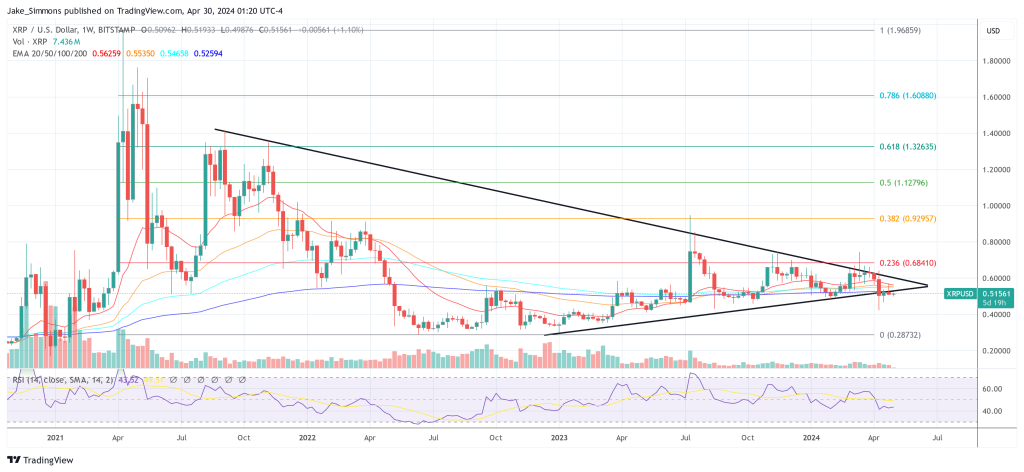ARTICLE AD BOX
In the XRP lawsuit, the Securities and Exchange Commission (SEC) has countered Ripple Labs’s recent motion to strike the declaration of SEC summary witness Andrea Fox. The agency’s filing asserts that the testimony is permissible as summary evidence under federal law, not requiring expert disclosure as claimed by Ripple.
The SEC’s motion, directed to Judge Sarah Netburn, underscores that the Fox Declaration is a “standard summary evidence permissible under Fed. R. Evid. 1006,” which aims to aid the court by providing straightforward arithmetic calculations based on Ripple’s financial records. The SEC’s motion states that “It is not an expert’s report, does not rely on specialized expertise, and does not render any opinions at all, let alone an ‘expert’ one.”
Ripple had argued that the declaration by Fox, an SEC accountant, should be dismissed because it allegedly constituted undisclosed expert testimony. The blockchain company contended that Fox’s role went beyond mere summarization and ventured into expert analysis by interpreting financial records and making substantive decisions about the categorization of expenses and revenues.
Ripple Vs. SEC: XRP Sales Under Microscope
Countering this, the SEC argues, “Ripple does not claim Fox miscalculated or erred in her math. Ripple does not claim that its own records are unreliable or not the proper subject of a summary witness.” The commission highlights that the purpose of Fox’s declaration is simply to streamline the voluminous financial data into digestible calculations for the court, without any expert judgment or specialized knowledge being applied
The filing elaborates on the nature of Fox’s contribution: “The Fox Declaration provides the Court, in summary form, with information contained on the face of Ripple’s voluminous financial and sales documents (including audited financial statements and profit and loss statements) and presents calculations (using arithmetic and nothing more) based on that financial information.”
In an interesting legal interpretation, the SEC also addressed Ripple’s allegations that Fox’s work was based on her understanding and assumptions from Ripple’s financial records and XRP institutional sales. According to the SEC, this is a standard procedure for any summary witness who must review and form understandings of extensive data.
The motion cites similar cases and legal precedents, arguing, “Summary witnesses who pull together massive quantities of data customarily make assumptions. So long as they are disclosed and reasonably drawn from the data being summarized, the use of assumptions is appropriate and does not convert the summary evidence into expert testimony.”
Furthermore, the SEC’s filing rebuts Ripple’s procedural challenges regarding the disclosure requirements of Fox as a witness. According to Federal Rule of Civil Procedure 26(a)(2), expert witnesses need to be disclosed if they provide specialized knowledge to the court.
The SEC clarifies that Fox does not fit this definition as she did not provide any opinions or use specialized knowledge in her analysis. “She has no first-hand knowledge of the facts at issue,” the SEC notes, affirming that there was no breach of procedural rules.
As the case progresses, pro-XRP lawyer Bill Morgan argues that “regardless of the outcome of this motion it is difficult to see the SEC’s argument on the question of pecuniary harm is strong.” In a statement via X, he added:
I mean imagine complaining you made profits from a contract with Ripple but didn’t make as much profits as someone else. Sure that is what this case is about. Protecting investors from a missed opportunity to make even higher profits while you fail to protect them from SBF and FTX.
At press time, XRP traded at $0.51561.

.png)
 8 months ago
4
8 months ago
4








 English (US)
English (US)